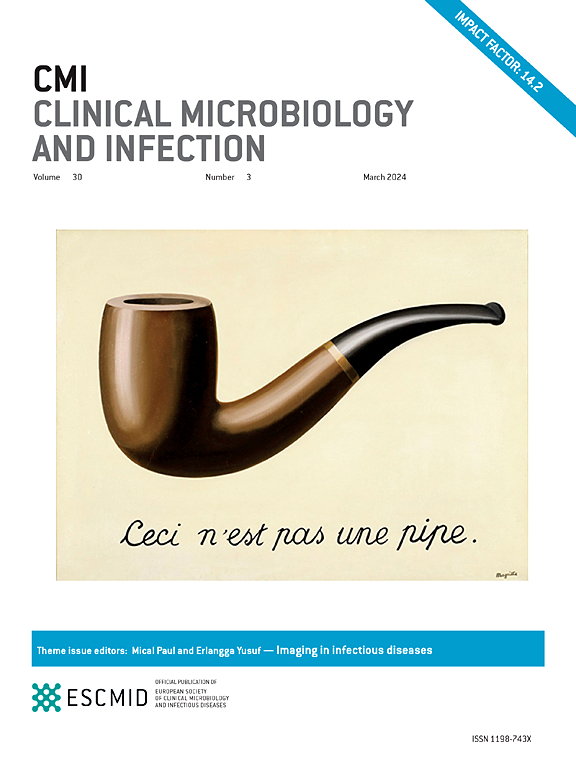The non-artemisinin antimalarial drugs under development: a review
IF 10.9
1区 医学
Q1 INFECTIOUS DISEASES
引用次数: 0
Abstract
Background
In 2022, malaria caused approximately 249 million cases and 608,000 deaths, primarily in Africa. Current treatments target asexual blood-stage parasites, gametocytes, and liver hypnozoites. Standard guidelines recommend a 3-day course of artemisinin-based combination therapies as a first-line treatment of uncomplicated malaria and parenteral artesunate for severe malaria. However, the emergence of partial resistance to artemisinin derivatives threatens the treatment efficacy, highlighting the urgent need for novel antimalarial drugs.
Objectives
This review summarizes recent progress in the clinical development of antimalarials particularly non-artemisinin compounds under target product profile-1.
Sources
Data were gathered from Medicines for Malaria Venture (MMV)'s portfolio and clinical trial databases between 2020 and 2024.
Content
Sixteen clinical trials were reviewed, including safety and efficacy studies involving healthy volunteers, experimentally infected volunteers, asymptomatic Plasmodium falciparum carriers and malaria patients. Six trials evaluated the safety and tolerability of MMV533, ZY19489, INE963, GSK701/MMV367 and intravenous KAE609 in healthy volunteers. Efficacy trials involving experimentally infected volunteers assessed ZY19489 and GSK701/MMV367, whereas studies on asymptomatic carriers tested ZY19489/ferroquine and cabamiquine/pyronaridine. Trials on malaria patients investigated combinations of ganaplacide/lumefantrine-SDF, cabamiquine/pyronaridine, both oral and intravenous cipargamin and INE963.
Implications
Although attrition remains a possibility, several promising candidate drugs with novel modes of action are advancing through clinical development. Many are expected to become available for treating uncomplicated and severe malaria within the next decade. These new antimalarials could significantly enhance malaria treatment, reduce resistance, and support global health efforts towards malaria control, elimination and, potentially, eradication.
正在开发的非青蒿素抗疟疾药物:综述。
背景:2022年,疟疾造成约2.49亿例病例和60.8万人死亡,主要发生在非洲。目前的治疗目标是无性血期寄生虫、配子体和肝脏催眠子。标准指南建议将3天疗程的以青蒿素为基础的联合疗法作为无并发症疟疾的一线治疗,并将青蒿琥酯外注射用于严重疟疾。然而,对青蒿素衍生物的部分耐药性的出现威胁到治疗效果,突出表明迫切需要新的抗疟药物。目的:综述了近年来抗疟药特别是靶产品谱(TPP)-1下非青蒿素类化合物的临床开发进展。资料来源:数据收集自2020年至2024年期间疟疾风险投资药物(MMV)组合和临床试验数据库。内容:综述了16项临床试验,包括涉及健康志愿者、实验感染志愿者、无症状恶性疟原虫携带者和疟疾患者的安全性和有效性研究。六项试验评估了MMV533、ZY19489、INE963、GSK701/MMV367和静脉注射KAE609在健康志愿者中的安全性和耐受性。涉及实验感染志愿者的疗效试验评估了ZY19489和GSK701/MMV367,而对无症状携带者的研究测试了ZY19489/亚铁喹和卡巴米喹/吡啶。针对疟疾患者的试验调查了加那普胺/氨芳曲林- sdf、卡巴喹/吡咯啶、口服和静脉注射西帕加明以及INE963的联合用药。启示:尽管损耗仍然是一种可能性,一些具有新作用模式的有希望的候选药物正在通过临床开发推进。许多药物预计将在未来十年内用于治疗简单和严重的疟疾。这些新的抗疟疾药物可以显著加强疟疾治疗,减少耐药性,并支持全球卫生工作,以控制、消除和可能根除疟疾。
本文章由计算机程序翻译,如有差异,请以英文原文为准。
求助全文
约1分钟内获得全文
求助全文
来源期刊
CiteScore
25.30
自引率
2.10%
发文量
441
审稿时长
2-4 weeks
期刊介绍:
Clinical Microbiology and Infection (CMI) is a monthly journal published by the European Society of Clinical Microbiology and Infectious Diseases. It focuses on peer-reviewed papers covering basic and applied research in microbiology, infectious diseases, virology, parasitology, immunology, and epidemiology as they relate to therapy and diagnostics.

 求助内容:
求助内容: 应助结果提醒方式:
应助结果提醒方式:


